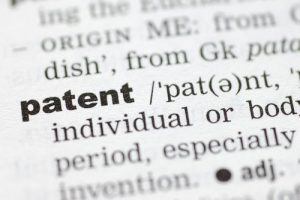
So you’ve come up with a brilliant idea, but you can’t get your head around the legal jargon. Or you’ve got people telling you you’ve got to patent your designs, or make the postman sign a NDA. But when are these legal processes most useful to an entrepreneur or designer? And does your concept qualify? We’ve collated some of the important information and used our business experience to shed some light on the subjects.
Can I get a patent?
 According to GOV.UK, a patent can be granted on an invention which is made or used, new, and inventive. If approved it will then allow the owner of the patent to prevent others manufacturing, using, importing or selling the patented product.
According to GOV.UK, a patent can be granted on an invention which is made or used, new, and inventive. If approved it will then allow the owner of the patent to prevent others manufacturing, using, importing or selling the patented product.
However you can also protect your intellectual property using trademarks, design rights and non-disclosure agreements.
Patents are expensive and slow to effect. It usually takes around 5 years for your patent application to go through, and costs around £4,000; you’ll also have to pay to renew it each year and the costs of legal action if you need to defend it.
Commercial potential has to outweigh the cost of patenting, or the patent may not be worth it; if the market for your product is small, it could be more beneficial to seek other forms of protection. Before wasting large amounts of time and money, check to make sure the technology hasn’t been thought up before; this is called “prior art” and can make your patent invalid. Search the patent office’s online department and browse sales magazines and the internet before applying.
For more information on patents, visit www.gov.uk/patent-your-invention/what-you-can-patent
Do I need an NDA agreement?
Nobody wants to think they’ll be taken advantage of in a business situation, but it happens more often than you’d think; one of the best ways to protect yourself from this is through an NDA.
Ask for an NDA (Non-Disclosure Agreement) before sending your designs to a manufacturer. This legally protects you from someone misusing or profiting from your confidential information.
While you are already protected by laws regarding breach of trust, NDAs are a legal document that shows both you and whomever you share your ideas with both understand it is meant to be kept confidential. When someone breaches an NDA, they have breached a written contract. This allows you to sue for damages.
When working on something you may want to patent (any prototype or proprietary design) an NDA can protect you. It is possible to lose the rights to patent if the design becomes public before you’ve patented it; for example, if you shop the idea around to multiple manufacturers without getting them to sign an NDA, it could be argued that the idea would have then fallen into Public domain. Disclosing your design to a manufacturer would entail a One-Way NDA, while a Mutual NDA would be for two entities wanting to disclose information to each other.
Here at Thompson Precision and our sister company JH May, we often have to take part in NDA agreements when working with multinational companies; these are industry-standard to protect both sides. With a client’s happiness at the forefront of our interactions, we’re always happy to consult on the importance of NDAs in regards to your project if it is something you need more information about. While the concept of NDA’s are something we understand very well, having a lawyer look over any information is also important. For more information on NDAs, visit https://www.gov.uk/government/publications/non-disclosure-agreements/non-disclosure-agreements.
We can provide our own standardised NDA to all clients looking for a Product Design Consultancy or a manufacturing agreement with our company. If you want to sign an NDA before discussing a project with us, contact us by email or ring us on 01277 365500.





